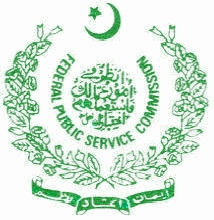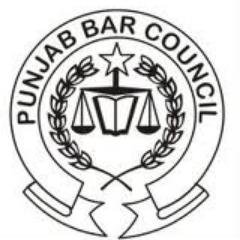
The Government of Punjab is the provincial government of the Pakistani province of Punjab. It is based in Lahore, the provincial capital. Its powers and structure are set out in the provisions of the Constitution, in which 41 districts come under its authority and jurisdiction. The government includes the cabinet, selected from members the Punjab Provincial Assembly, and the non-political civil staff within each department. The province is governed by a unicameral legislature with the head of government known as the Chief Minister. The Chief Minister, invariably the leader of a political party represented in the Assembly, selects members of the Cabinet. The Chief Minister and Cabinet are thus responsible for the functioning of government and are entitled to remain in office so long as it maintains the confidence of the elected Assembly. The head of the province is known as the Governor, appointed by the federal government, on behalf of the President, while the administrative boss of the province is Chief Secretary Punjab.

The Ministry of Railways is a ministry of the Government of Pakistan tasked with planning, administrating and overseeing government policies for the development of the national rail network, Pakistan Railways. Originally a department of the Ministry of Communications, in May 1974 it formed into an autonomous ministry of the federal government. The ministry headquarters is located at Block D of the Pak Secretariat in Islamabad.

The judiciary of Pakistan is the national system of courts that maintains the law and order in the Islamic Republic of Pakistan. Pakistan uses a common law system, which was introduced during the colonial era, influenced by local medieval judicial systems based on religious and cultural practices. The Constitution of Pakistan lays down the fundamentals and working of the Pakistani judiciary.
The Kerala Public Service Commission (KPSC) is a body created by the Constitution of India to select applicants for civil service jobs in the Indian state of Kerala according to the merits of the applicants and the rules of reservation.

The Federal Public Service Commission(FPSC) (Urdu: وفاقی عوامی خدمت ماموریہ) is a federal agency of Government of Pakistan that is responsible for recruiting civil servants and bureaucrats for Government of Pakistan.

The Sadiq Public School (SPS) is a college-preparatory boarding school located in Bahawalpur, Punjab, Pakistan. It also takes day pupils. It is one of the largest schools in Pakistan and its area of 451 acres (1.83 km2) makes it both the largest in the country and in continental Asia.

The National Accountability Bureau is Pakistan's anti-corruption agency. Its chairman is Nazir Ahmed Butt, a retired general.
Law enforcement in Pakistan is one of the three main components of the criminal justice system of Pakistan, alongside the judiciary and the prisons. The country has a mix of federal, provincial and territorial police forces with both general and specialised functions, but the senior ranks of all the provincial forces and most of the federal ones are manned by members of the Police Service of Pakistan (PSP). The PSP is one of the most prestigious part of the Central Superior Services, Pakistan's main civil service organisation. Federal law enforcement agencies are generally overseen by the Ministry of Interior of the Government of Pakistan, while provincial police forces are overseen by a department of the government of that province.

The Pakistan Bar Council (PBC) (Urdu: پاکستان بار کونسل) was established by the Parliament in 1973 under the Legal Practitioners and Bar Councils Act.

The Election Commission of Pakistan (ECP) is an independent, autonomous, permanent and constitutionally established federal body responsible for organizing and conducting elections to the national parliament, provincial legislatures, local governments, and the office of president of Pakistan, as well as the delimitation of constituencies and preparation of electoral rolls. As per the principles outlined in the Constitution of Pakistan, the Commission makes such arrangements as needed to ensure that the election is conducted honestly, justly, fairly and in accordance with law, and that corrupt practices are guarded against. The Election Commission was formed on 23 March 1956 and has been restructured and reformed several times throughout the history of Pakistan.

The Punjab Police is a law enforcement agency of Punjab, Pakistan. Under the command of its Inspector General (IG), it administers all criminal cases under the Police Acts of 1861 and 2002. The force was introduced in its modern form under British rule, and a colonial influence continues. On 23 January 2023, Dr. Usman Anwar was appointed as the Inspector General of Punjab Police.

The Punjab Bar Council is a deliberative assembly of lawyers in Punjab. It is established by Parliament of Pakistan and consists of 75 members elected from different constituencies of Punjab. Its main functions are to promote and suggest law reforms, to safeguard the rights, interests and privileges of practicing lawyers while regulating their conduct, to recognize or derecognize Bar associations and to help in the administration of justice. Punjab Bar Council also sends one of its Member to Judicial Commission of Pakistan, who gives advice and vote for the appointment of Lahore High Court Judges. The council is the largest Provincial Bar Council in Pakistan with more than 100,000 advocates as its License holders. All Bar associations of Punjab including Tehsil Bar Associations, District Bar Associations and High Court Bar Associations work under the Jurisdiction of Punjab Bar Council. Currently more than 124 Bar associations are working under Punjab Bar Council. The lawyers recognized by the council can only represent clients in the all Branches of Lahore High Court, District Courts and Session Courts in Punjab, Pakistan. The Punjab Bar Council is based in Lahore, Pakistan, came into being as a result of the promulgation of the Legal Practitioners and Bar Councils Act, 1973. The Council commenced functioning with effect from 1 January 1974.

The Punjab Prisons is a correctional organization, a uniformed service and an attached department of the provincial Home Department in Punjab, Pakistan. The organization works under administrative control of the Additional Chief Secretary Home to Government of the Punjab, Pakistan. Functional head of the organization is Inspector General of Prisons who manages 43 prisons in the province. The organization is responsible for custody, control, care and correction of prisoners confined in various central, district and special jails in the province of Punjab, Pakistan).
The Rajasthan Public Service Commission (RPSC) is a body with authority under the Constitution of India to select applicants for appointment to civil service jobs in the Indian state of Rajasthan according to the merits of the applicants and the rules of reservation. It advises the government of Rajasthan on all matters relating to the rules of recruitment, appointment, transfer, promotion, professional standards and disciplinary action of civil servants. In this capacity, the commission organizes recruitment procedures, competitive examinations and screening tests, and candidate interview boards for the appointment of officers to civil service and civil posts within the state.

Pakistan Medical and Dental Council is a statutory regulatory authority that maintains the official register of medical practitioners in Pakistan. Its chief function is to establish uniform minimum standards of basic and higher qualifications in medicine and dentistry throughout Pakistan. It also sets the education standards for medical colleges in Pakistan along with the Higher Education Commission.

The National Disaster Management Authority, is an autonomous and constitutionally established federal authority mandated to deal with the whole spectrum of disasters and their management in the country.

The Sindh Public Service Commission is a provincial agency of Government of Sindh that is responsible for recruiting civil servants and bureaucrats for the Government of Sindh.

The Punjab Public Service Commission (PPSC), formerly known as the Joint Public Service Commission, is a government agency and topmost constitutional body of the Government of Punjab, India. It is responsible for conducting civil services and competitive examinations to various civil services and departmental posts in the jurisdiction of Punjab, India.
Sajjad Saleem Hotiana is a retired Pakistani civil servant who served in BPS-22 grade as Chief Secretary Sindh. Hotiana also served as Chief Secretary Gilgit Baltistan and Senior Member Federal Land Commission. After retirement from active civil service, he tenured as Member of Punjab Public Service Commission (PPSC). He is civil service batchmates with Babar Yaqoob Fateh Muhammad, Shehzad Arbab and Tariq Bajwa.
The Anti-Corruption Establishment Punjab (ACE) is a governmental organization situated in the province of Punjab, Pakistan. Its primary objective is to investigate cases of corruption and conduct preliminary inquiries to assess whether these offenses warrant further investigation. The ACE Punjab operates under the administrative jurisdiction of the Chief Secretary, ensuring alignment with government protocols and directives in addressing corruption-related matters within the province.















